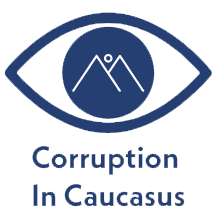The high-profile trial of Ramin Isayev, former CEO of SOCAR AQS, has taken a new turn. Following the recent promotion of Judge Faiq Ganiyev, who had been overseeing the case since its beginning, a new panel of judges has been appointed.

Judge Vugar Guliyev now leads the proceedings, with Judges Shalala Hasanova and Elmin Rustamov joining him on the bench. The trial is being held in the Baku Court of Serious Crimes

A Fresh Start for the Legal Proceedings
Judge Ganiyev’s promotion has necessitated a complete trial restart, including renewing the investigation and reviewing evidence. The decision underscores the court’s emphasis on ensuring procedural fairness and thorough case examination. Isayev, who was taken into custody by the Anti-Corruption General Directorate in July 2023, will now face trial under this new judicial arrangement.
The Case Against Ramin Isayev: A Recap
Ramin Isayev, a once-prominent figure in Azerbaijan’s energy industry, is accused of orchestrating large-scale financial crimes during his tenure at SOCAR AQS. As CEO, he held responsibility for managing the company’s drilling operations and other vital services within the oil and gas sector. However, prosecutors allege that he leveraged his position to engage in fraudulent activities, embezzlement, and abuse of power.
Key accusations include:
- Fraudulent Schemes: Allegedly diverting significant sums of money from company accounts for personal gain.
- Embezzlement: Misusing company funds to finance an extravagant lifestyle.
- Abuse of Authority: Manipulating contracts and bending company policies to secure illegal benefits.
Importantly, investigators have indicated that SOCAR AQS, as an organization, was not complicit in Isayev’s actions. The evidence suggests that he acted independently, without the company’s awareness or approval.
Reactions from Stakeholders
The trial has sparked significant attention within Azerbaijan and beyond, with many seeing it as a litmus test for the country’s legal system and its approach to tackling corporate corruption. Leaders in the energy sector have expressed concerns about the broader implications of the case, calling for tighter controls and improved governance to safeguard against similar misconduct in the future.
Implications of Restarting the Trial
The court’s decision to restart proceedings from scratch has far-reaching consequences:
- Judicial Integrity: The move demonstrates a commitment to impartiality and due process, ensuring the trial is conducted under transparent conditions.
- Public Confidence: A fresh start offers an opportunity to rebuild trust in the judicial system’s ability to handle high-stakes cases effectively.
- Corporate Oversight: The trial continues to serve as a cautionary tale, highlighting the critical need for stronger ethical standards and accountability in corporate leadership.
Lessons for Corporate Governance
The allegations against Isayev underscore essential lessons for organizations, particularly those in high-stakes industries like energy. To prevent similar incidents, businesses must focus on:
- Enhancing Internal Controls: Implementing robust systems to detect and address irregularities.
- Promoting Ethical Leadership: Holding executives accountable to clear ethical guidelines.
- Encouraging Transparency: Fostering a culture where concerns can be raised without fear of reprisal.
What Lies Ahead
As the case resumes, its significance extends beyond the fate of Ramin Isayev. The trial is expected to set a benchmark for how Azerbaijan handles corporate malfeasance and reinforces legal standards across its economic landscape. Observers will be closely monitoring the court’s approach, with the hope that this renewed effort will deliver justice and offer valuable lessons for fostering integrity and transparency in the corporate world.
The evolving trial of Ramin Isayev remains a focal point for advocates of good governance and legal accountability. With each new development, it offers deeper insights into the challenges and opportunities of combating corruption in emerging economies.

